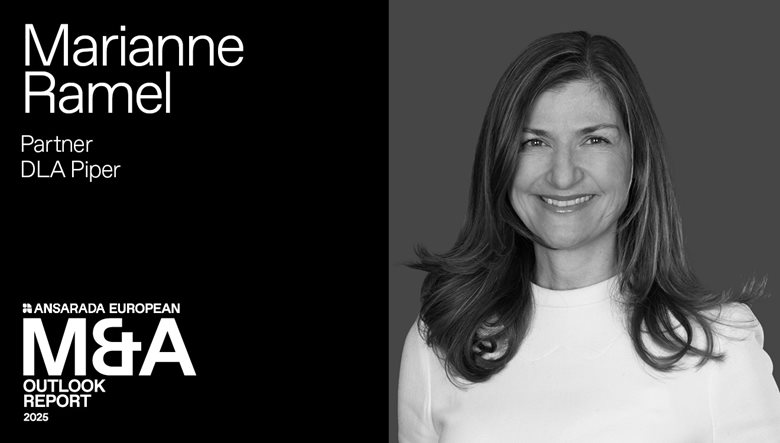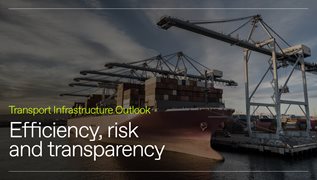DLA Piper’s Marianne Ramel: Swedish M&A set for recovery despite FDI headwinds
Marianne Ramel, discusses M&A, ESG and FDI in the Swedish dealmaking market.
By AnsaradaMon Jun 02 2025Mergers and acquisitions, Industry news and trends, Innovation

In this excerpt from our 2025 European M&A Outlook Report, which features insights from 12 leading European dealmakers, Marianne Ramel, Partner at DLA Piper, shares her perspectives on the Swedish M&A landscape, emerging regulatory challenges, and the evolving due diligence environment.
What is the outlook for M&A in 2025 in the Swedish market?
Deal numbers have been down over the past year. We are noticing transactions taking more time, which can partly be attributed to the high interest rate environment we have lived through over the past few years. Alongside this trend, we are witnessing an increase in transaction value, with dealmakers focusing on larger transformative transactions over smaller opportunistic deals. Value-driven deals with a strong strategic focus are top of the agenda in the current climate.
Having spoken with clients working on sales, investments and acquisitions, we expect to see an increase in activity during the second quarter of 2025 – a trend that has already become apparent over the past two months or so. One positive factor set to drive Swedish M&A activity is the gradual lowering of interest rates across Europe. Swedish currency is very cheap at the moment and if I were a foreign investor, I would consider Sweden. Not only does the country have a relatively strong economy, but it boasts a high level of innovation, a skilled workforce and robust regulatory frameworks.What do you think will be the biggest potential risks or challenges that dealmakers will have to contend with in 2025?
The major obstacle that I believe could hold back foreign investment and M&A activity in Sweden is the new foreign direct investment (FDI) regulation coming into force. Although Sweden is a relatively stable investment climate, unpredictability triggered by this new regulation could pose a challenge for dealmakers going forward. While the roll-out of this new regulation is still in its infancy, I do not think the definition of what constitutes ‘national security’ has been clearly defined in relation to foreign investment.
If you look at Finland, for example, its regulatory position in terms of national security has evolved over decades in response to the perceived threat from Russia. I think it needs to be very clear what we are trying to protect. If the regulatory authorities do not achieve this aim, it will create an unpredictable environment for foreign investors looking to invest in Sweden. We need to learn from our European colleagues, particularly Finland. In my opinion, there needs to be a certain reorganisation of our FDI regime in order for it to complement our M&A market rather than hamper progress, in particular in relation to greenfield investments which is unique for Sweden.
Within the current climate, are dealmakers dedicating more resources to due diligence?
Due diligence processes are definitely taking longer, with very specific questions being asked around topics such as environmental, social and governance (ESG) issues. Take solar panels, for example. You need to get to the bottom of the origination of their supply. There is currently an inequality in the market, with new players facing more due diligence scrutiny compared to larger, more established companies. Ultimately, these smaller market entrants will be required to answer many more questions in terms of the origins of their components.
Of course, technology has positively impacted the evolvement of due diligence practices. While certain elements of the process have become quicker and more efficient, other tasks continue to take more time. Clients are getting more involved in due diligence questions than ever before, which inevitably adds time to the process.
Do you expect greater levels of protectionism and FDI scrutiny in 2025? How could this potentially impact cross-border M&A?
While we are witnessing a rise of protectionism on the global stage, Sweden has traditionally countered this trend. As a small, export-driven country, Sweden has historically been very open to foreign direct investment. I am wary of the new FDI regulation coming in as it goes against this trend. It is a steep transition that will need to be handled in a sensitive manner.
Ultimately, the future trajectory of Sweden’s FDI regulation will depend on the opinion of politicians. There are, I would say, competing wishes within the regulatory authorities and political spheres about the future direction of Sweden’s FDI position. We will need to see who comes out on top in these discussions. There is no quick fix to the current situation. It will take some time before we find more level ground on what FDI regulation should cover.
There needs to be a balance struck between bringing in foreign investment and protecting national security, yet we are not at this point yet. The fact that certain parties are coming at the topic from different angles, with varying strategic aims, could potentially hamper progress.


